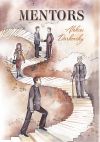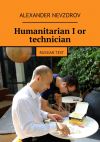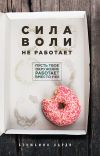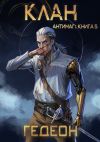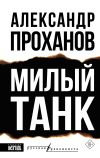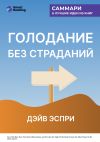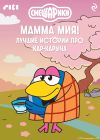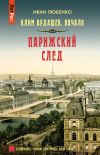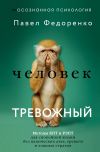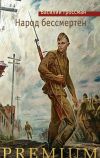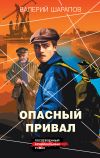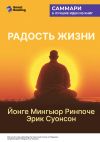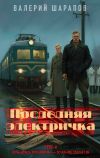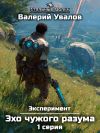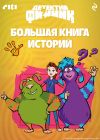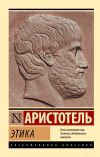Текст книги "Sensei of Shambala"
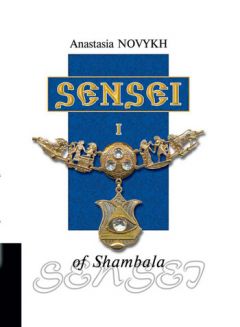
Автор книги: Anastasia Novykh
Жанр: Эзотерика, Религия
Возрастные ограничения: +12
сообщить о неприемлемом содержимом
Текущая страница: 2 (всего у книги 23 страниц) [доступный отрывок для чтения: 6 страниц]
A girl with bright curls was changing next to me. Getting acquainted with her, I asked, “Have you been training here for long?”
“No, only for three months.”
“And does he often tell and show such things?”
“Well, probably when it’s necessary. But, when he is in a good mood, he shows much more… Today it was nothing out of the ordinary.”
“Not so bad, nothing out of the ordinary”, I thought to myself. “I can’t imagine what something special would be then?!”
“What style did he master, the Tiger?”
“Not only. I’ve heard from the senior guys that have been training here for a long time that he perfectly mastered the Dragon, Snake, Wing-chun, Cat, Mantis, and Monkey styles, and a who le range of other styles that I just can’t remember.”
I gave her a distrustful gaze, “When did he have time to master all that? He looks like a young man. People sometimes spend their whole life mastering just one style.”
“I was also surprised at first,” she went on. “But the guys say that, according to the Teacher, a young body doesn’t mean the age of the soul.” My new acquaintance answered, shrugging her shoulders.
“Who is he, then?!” I started to become nervous, and my old thoughts, together with this new information, once again began tormenting my unsatisfied curiosity.
“An ordinary man,” I heard in reply.
Having changed, our company crowded before the exit and contemplated with admiration the unusual technique of a couple of athletically built guys who were training with the others who had stayed. I’d never seen such genuine, naturally beautiful undercuts, overturns, elusively smooth withdrawals, even in movies. But what struck me the most was the speed of their movements. “Is it really possible to move at such speed and still be able to orientate yourself so well in space?” I thought to myself. “Great! And where is Sensei among them?”
Sensei turned out to be sitting quietly aside, looking through a pile of papers and books with bookmarks, presented by Dumpling. Two more men were sitting nearby carefully listening to the explanations of the Teacher. Then Dumpling unfolded a yellowed map, and all four inclined over it as if it were a priceless treasure. Sensei started to mark something there with a pencil, constantly commenting and explaining it. I really wanted to get my curious nose in there, but at that time we were gently pushed by guys trying to get out.
“Hey, guys! Why are you standing here? Don’t you know the law of this dojo? You either train here or you stay on the other side of the door. If you want, go back in, and if you are going out, go out, don’t disturb the others.”
Together we streamed out outside. “It’s not fair!” I thought jealously. “They’ve stayed, why can’t we?” But, of course, I didn’t say anything aloud.
5
We spent almost one whole hour waiting for the only bus in that district, strenuously tamping the earth that was called the bus stop. But the bus didn’t come. So we walked to the tramway, which the locals said was fairly close: only some thirty or forty minutes of walking. But since we weren’t familiar with the area, we spent an hour and a half getting there. But nobody paid attention to those unpleasant circumstances. Every body passionately shared impressions of the training.
“So,” said Kostya smiling, “are we going to the next training?”
Almost simultaneously we all said, “Yes!” “I don’t know about you,” said Andrew, the biggest fan of martial arts among us, “but I think I found what I wanted, at least for now. Cool training!”
“Yes,” Kostya interrupted him, “today I learned a lot more than during all our visits to different schools.”
The guys nodded in agreement. Suddenly Slava stopped, tapped himself on the forehead, and said with horror, “Shoot! We forgot to ask how much it costs!”
Andrew placed his hand on Slava’s shoulder and reassured him, “Don’t worry, old man, I’ve asked Sensei. He said: ‘The more the better. But not more than five rubles. Preference will be given to the pure gold of royal coinage’.”
Everybody laughed. Slava even took a deep breath of relief, which was understandable be cause he was a good guy but from a poor family. He could not afford to pay for the training in the other schools. To get fifteen or twenty rubles a month meant a real fortune for him. Loudly recalling some episodes that happened during the training and the Teacher’s funny jokes, we didn’t even notice how we got to the tram stop.
6
The working week had begun. We got very interested in the vagus nerve story and body innervations in general. For the remaining days of the week, we tried to uncover details from our biology and anatomy teachers. But they didn’t give us any concrete answer, saying only that most likely it had to do with advanced anatomy, which was studied in medical universities. This fanned the fire of our interest even more and gave us an impulse to search for these kinds of books through our friends and relatives.
All that time, I was trying hard to search through my memory in order to figure out where I knew Sensei from. I even took time and went through all my family photo albums. But my attempts were in vain. As before, life went on in a continuous search for answers to unknown questions.
We could hardly wait for the next training. So as not to be late, we departed two hours earlier. When our company arrived at the sports hall, we were surprised to discover that we weren’t first, even though there was still half an hour before the training. There were thirty people already waiting, like us unwilling to miss something interesting right from the beginning. Our guys, getting acquainted with some of them, jokingly came to the conclusion that we, in comparison to those poor guys, live quite close by. Because they lived in such distant districts, some people had to spend almost half a day on their journey, changing a couple of different types of transport and wearing out their soles walking a great many miles. And only a few lucky ones drove here in their own cars.
“So, guys,” Andrew concluded, “you may show off and yell that we are locals!”
Sensei arrived soon, surrounded by a group of guys. People started to smile and act friendly. Separate groups merged into a single crowd greeting the Teacher and entering the open sports hall. We also got caught up in this wave of good feelings. But our joy didn’t last long.
At the very beginning of the warm-up, two respectable looking men walked in and, approaching Sensei, began whispering something to him in a familiar way. Having agreed upon something, the Teacher entrusted the senior sempai to continue the training, and having slipped on a jacket right over his kimono, walked out with them. From that point forward, there was endless suffering of our extremities.
The senior sempai, obviously planning to train us the same way he trained his muscular body, carried out a warm-up in a tough tempo, as if we were being prepared for a gold medal. There was such a difference between Sensei, with his graduated exercises, and the senior sempai, who tried to make us Olympic champions with a full set of medals before the Teacher returned. At the end of the warm-up, we heard the command to relax, which for some reason was named by the sempai the “dead body position.” People in the sports hall, including me, fell down to the floor with such a loud sound that it really seemed that exhausted dead bodies were lying all around. Later, I found out that the sempai interpreted some commands in an unusual way because he was a policeman.
After that exhausting warm-up, we started to re peat after our chief instructor basic exercises mastering blows, blocks, and stances. I had the impression that I was in the Japanese army, where soldiers executed commands in an exact and simultaneous manner, loudly counting in reply in their native language.
When Sensei walked in, I breathed in with ease. He took his jacket off and continued the training as if nothing had happened. Having noticed a mistake made by a young man standing in the first row, he corrected him courteously: “The correct blow should be delivered with this part,” he circled the area on the bones of the forefinger and middle finger. “This way… You shouldn’t use these two neighboring fingers (ring finger and pinkie finger) because the incorrect blow can seriously damage your wrist.”
And, already addressing the crowd, he added: “It’s necessary to work hard and long on yourselves not just to correctly deliver blows, but also not to harm yourselves. A straight fist blow, as I have already said, is one of the basic martial arts techniques. And without thorough preparation, the fist can be easily hurt. If you train every day, the flexor tendons of the fingers, which are located over here, will part over the sides of the metacarpophalangeal articulations II and III of the fingers in such a way that the bones will become protected and dense. Only then will you be able to easily deliver blows without harming yourselves.”
Someone asked him, “To achieve that, should we start hitting something very hard?”
“No need for such a sacrifice,” objected Igor Mikhailovich. “Start hitting a punching bag. Or, if somebody doesn’t have one, use a sand bag. I think everyone can make one at home. But what’s important is to slowly exercise the blow, gradually increasing speed. And don’t be lazy, really work at full power. Then the result will come.”
The training ended with another demonstration of new techniques from the Tiger style and practice of the previous moves. And again, after the training, puffy Dumpling posed questions to Sensei. There were many people around who wished to talk to Sensei or to listen to him. But Dumpling impudently crawled through the surrounding crowd, including us, and took the Teacher aside, obviously considering his question more important. Not being able to wait for the end of their conversation, we went home.
7
A couple of days later, we got a good news: somehow Kostya managed to get the university manual of anatomy through friends of his parents. Our joy was infinite. First, of course, we satisfied our curiosity about the vagus nerve by touching and detecting its routes in our bodies. Kostya wasn’t too shy during this experiment and conducted his diagnostics right on Tatyana, making her squeak and us laugh. Then we examined more thoroughly the structure of our hands. And later we started to examine in detail, with evident interest, our bones, muscles, tendons, nerves, organs, and brain. I can’t say that I didn’t know it before. In general, we studied all of this during anatomy classes. But it was the first time that I looked at it from a different point of view. And it was the first time I was interested in it not because of school, but rather to know it for myself.
I really wanted to examine my muscles and joints in order to understand why and how we move. How do muscles take part in our exercises, and how are they reflected on our internal organs? What happens during the blow? What is pain from the physiological point of view? Why do people suffer at all? And finally, what is going on in my own brain? Perhaps, the last thought was the most important because subconsciously it had been tormenting me.
The guys commented on what we had seen during the training just as passionately, but they were motivated by their own reasons. We agreed unanimously that we didn’t know anything in this sphere and that we should fill this gap together. In order to do that, we spontaneously created a special card game. We drew separate cards for bones, muscles, blood and nerve vessels, the lymphatic system, organs, and the brain. Then we made attempts to put that puzzle together, one by one, trying to identify them not just by name, but also by the corresponding functions. At first, of course, it was hard. But all this was accompanied by such jokes, such a passion that, whether you wanted to or not, you’d remember.
Before the next training session, we formulated a couple of questions on biomechanics of the blow and decided to ask Sensei after the training in order to find a reason to stay longer. But that day, life itself gave us an opportunity to do this without our secret conspiracy plan.
At the end of the training, Sensei organized free fights. People sat down on the floor, creating a big circle, and fighters were selected and invited by Sensei two by two into its center. Andrew was chosen, and his opponent was a novice, also brawny and athletically built, chosen by Sensei. Having made a traditional bow to each other, the guys started the fight. For some time, they fought as equals. But Andrew turned out to be faster and nimbler, and that let him win. The approving clap of Sensei meant the end of the fight. Our guy helped his competitor stand up. Bowing to each other and to the Teacher, they took their places.
And when more serious fighters began to walk out to the improvised ring, Andrew couldn’t stand watching. Inspired by his recent victory, he volunteered to fight again. He lost almost immediately. This circumstance greatly fanned his dissatisfaction with himself. Infected by his emotional mood, our company screwed up all its courage and asked Sensei to stay for additional training. The Teacher answered smiling, without objections, “You know the law of this dojo: If you want to train, you stay and train.”
That day, fortune was on our side because Dump ling was not present at the training to irritate us with his importunity. Access to Sensei was free, and we could ask him about all aspects of the training that interested us.
While the majority of the crowd was leaving, all the rest were perfecting their blows’ weak sides. The ones we named “speedy guys” worked on their own level, and the rest of us on our own. But Sensei was closely watching all and correcting the mistakes he noticed. In the already deserted building, he showed us new kata (shadowboxing), which united the speed of undercuts, blows, overturns, and sharp withdrawals. When I started to practice them, Sensei suddenly came up to me from behind and, putting his hand on my shoulder, said “You’d better not do this.”
I turned to him in surprise: “Why?”
At this moment our eyes met at a close distance. I had such a drilling feeling as if someone were looking through me from head to toes with an X-ray. I’ve never seen such a gaze. It was very unusual, piercing, and strange.
“Because.”
That answer puzzled me a little. I was standing quite confused, not knowing what to say.
Keeping silent for a while, he finally added: “It would be better for you to do these kata.”
Sensei showed me movements that smoothly changed one into another, with deep breathing following them. All that time I was repeating after him almost automatically. And when he went to help others, endless questions started to flash in my head: “What did he mean? Can it be that he knows about my diagnosis? But how?! I didn’t tell any of my friends, and so far I didn’t show it in any way during training.” And during this process of thinking, I made an unbelievable discovery. At school, home, at ballroom dances, I had sometimes a sudden, throbbing, continuous headache, but here, no matter how much I tortured my body, this headache had never appeared. “Why? What is the reason for that?”
Being deep in my thoughts while working on new techniques, I didn’t notice how people crowded around Sensei, having interrupted their exercises. And when I finally realized that, I joined the listeners in order not to miss something important.
“Can you tell us how we can learn a technique of the real blow, just by training our muscles?” Andrew asked.
“No. First of all, by training your mind,” Sensei replied.
“And what does it look like?”
“Well, to be clearer, let’s say it this way… A muscle is like a mechanism that executes its function. It has certain programs coming from the brain in the form of neuron impulses. As a result of the work of such programs, signals arise in the brain that cause contractions of a group of muscles. Thus it results not only in movements of extremities but also in complex moving acts. It means that our training leads to a purposeful perfection of our brain and therefore of our muscles. The better and faster the trained brain works, the faster and better the muscles work.”
“And what about the highest mastery of martial arts fighters?” Kostya asked, joining the discussion. “I’ve read somewhere that masters can deliver a blow before they even think of it. How does it happen and why?”
“Well, guys. You touch upon such a serious subject. But I’ll try to explain in a few words… The whole trick is not just to simply train your muscles but to imagine a concrete situation, or your opponent. And the most important is to know exactly where you hit, into which tissue, and what is happening inside of that body, what’s the power level of the blow, and so forth. If a man strikes thoughtlessly, just to practice, then all his efforts are in vain! A true fighter, while practicing on a maki-vara, first of all works with image. He imagines how the opponent opens up, and at that moment he delivers a blow, being conscious of all possible consequences. In other words, he trains his brain.”
“And what is happening in the brain during that?” one of the senior guys asked.
“The brain evaluates the situation through visual perception, analyzes it and makes a decision. Then it sends that command to the cerebellum or, in other words, to the motion center. And from there, through the nerves, the corresponding signal arrives into the muscles. All that activity is being fixed in the memory. Then, during the fight, this memory unconsciously returns but without a complex chain of analysis and commands in the brain. In other words, when an opponent just opens up, a master has already counteracted automatically. Let’s say it’s a different frame of mind, a different innervation, and different workings of the brain.”
“Does it happen on a subconscious level, from the physiological point of view?” asked Kostya, showing off his erudition.
“You are absolutely right. Complex reflex motion reactions proceed now on the level of unconditional reflex,” said Sensei smiling. He added, “in the school anatomy program such things are described as conditional and unconditional reflexes. The unconditional are genetic by nature. They determine the regulation of the internal medium of the body and preservation of the species. And to the conditional belong the acquired reflexes arising as a result of accumulated experience and new skills. But even they are based on unconditional reflexes. Human beings have a lot of unconditional reflexes, connections, reactions regulating the spinal brain, the after brain, and the middle brain, the subcortical sections of cortexes of the cerebral and cerebellar hemispheres…”
“And is ‘the Highest Art’ what you told us at the beginning?” Andrew asked with excitement.
“No, it’s only a first step to real mastery. In ‘the Highest Art,’ the major work is based on pre-vision. It is the work of epiphysis which is located above the cerebellum in the epithalamus area of the thalamencephalon.”
“And is epiphysis just a section of white matter?” asked Kostya.
“No, it’s the so-called pineal gland that weighs only one carat. However, it plays a huge role in the vital activity of the body. It is one of the most mysterious parts of the human brain and of the human as a whole. Unfortunately, science doesn’t know anything about its true functions.”
“And who does know?” asked curious Kostya.
“Those who need to know,” Sensei answered with a cunning smile and went on. “So, working on pre-vision, a master subconsciously obtains the ability to catch his opponent’s thoughts. It means that, as soon as the opponent thinks about striking somewhere, the master has already simultaneously taken the exact counteraction that is necessary. All that happens unconsciously, in a few split seconds.”
“I wonder if only masters of martial arts face this phenomenon of momentary speed?” Andrew asked thoughtfully.
“Why? Not only. Many people often face these phenomena of mind. Some acquire it after long special training. For example, circus acrobats that catch knives or arrows at great speed. Other people have experienced the influence of unconditional reflexes in their lives. Let’s say you are seriously scared by someone or something, for example, by a dog; you can momentarily execute a series of movements. And only later when the danger has passed you realize how fast you have done it. This ability is implied from the very beginning in human genes. Otherwise, people wouldn’t have survived in ancient times when they had to save themselves by running from mammoths, saber-toothed tigers, or other predators.”
We stood silent, enchanted by Sensei’s words. At that time somebody knocked on the door. It caught me off guard, and everything inside of me contracted. It wasn’t a time when people were out just for an evening walk. Sensei calmly opened the door under the watchful eyes of our company.
“Oh, it’s good that I’ve caught you here,” an unknown man greeted him shaking his hand. “I was just about to look for you at home. You see, there is such a case…”
“All right, wait a second,” replied Sensei. Turning to us, he said, ”Guys, you have fifteen mo re minutes and then we have to go home.”
Half an hour later, we were standing outside, waiting for the others. Igor Mikhailovich closed the sports hall and quickly said goodbye to us, then drove off in a car.
“Well,” I was getting angry with myself, “I wanted to ask Sensei after the training about his mysterious ‘because,’ but it didn’t work out. I should have asked him in the sports hall. But there are too many curious ears over there. That’s the trouble!”
On the way home, everyone thought about his own experiences. And this was not strange, after such trainings there was always something to think about. Some of us thought silently and some aloud. For almost half of the way, Andrew was trying to convince us or most likely himself that he had lost just by accident.
“It’s a pity that I didn’t have nunchaku with me. Never mind, I will bring them to the next training. And then I’ll show them!”
That spectacle promised to be really thrilling, as we knew how good Andrew was with nunchaku. It was his favourite skill.

